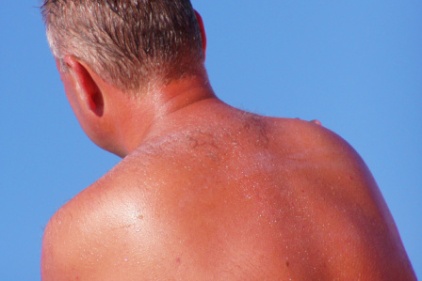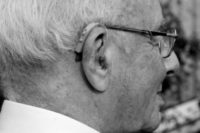One in five Americans will get skin cancer
“Don’t Fry Day” coming up

 With summer just ahead and more and people spending more time in the sun, a group of federal agencies has designated Friday as “Don’t Fry Day,” to remind Americans to reduce their skin cancer risks.
With summer just ahead and more and people spending more time in the sun, a group of federal agencies has designated Friday as “Don’t Fry Day,” to remind Americans to reduce their skin cancer risks.
The EPA, FDA, CDC and the National Council on Skin Cancer Prevention are all part of the effort.
CDC Director Tom Frieden, M.D., M.P.H., said if current trends continue, one in five Americans will get skin cancer in their lifetime. The states with the highest melanoma death rates include Alabama, Arizona, Colorado, Idaho, Indiana, Iowa, Montana, Oregon, Utah, and West Virginia.
Young people are getting most dangerous form
“Of particular concern is the increase we are seeing in rates of melanoma, a potentially deadly form of skin cancer. In the United States, melanoma is one of the most common cancers among people ages 15 to 29 years.”
Frieden said many said many skin cancers can be prevented by reducing UV exposure from the sun and indoor tanning devices.
Janet McCabe, deputy assistant administrator for EPA’s Office of Air and Radiation said simple steps like using sunscreen and wearing UV-blocking sunglasses can reduce the risk.
“While we’re making progress toward restoring the Earth’s ozone layer, Americans need to take steps now for extra protection from harmful UV rays and skin cancer,” said McCabe.
New sunscreen labels give more info
To make it easier for people to choose products that effectively reduce the health risks of UV overexposure, the FDA has issued new labeling rules for sunscreen products. These include:
- Sunscreens proven to protect against both ultraviolet A (UVA) and ultraviolet B (UVB) rays can be labeled “Broad Spectrum.” Both UVB and UVA radiation contribute to the sun’s damaging effects.
- Sunscreen products that meet the criteria for being called “Broad Spectrum” and have a Sunscreen Protection Factor (SPF) of 15 or higher may state that they reduce the risk of skin cancer and early skin aging when used as directed with other sun protection measures.
- Any product that is not “Broad Spectrum,” or has an SPF below 15, must have a warning stating that the product has not been shown to help prevent skin cancer or early skin aging.
- New water resistance claims on the front label must indicate whether the sunscreen remains effective for 40 minutes or 80 minutes while swimming or sweating.
Seek shade not sun
In addition to using Broad Spectrum sunscreen, here are some tips to help enjoy the outdoors safely this Memorial Day weekend and throughout the summer:
- Seek shade, not sun: Seek the shade when the sun’s rays are strongest; avoid sunburns, intentional tanning, and use of tanning beds; use extra caution near reflective surfaces like water and sand.
- Wear protective clothing: Wear sun-protective clothing, a wide-brimmed hat, and UV-blocking sunglasses.
- Check the UV Index: EPA and the National Weather Service offer the UV Index--an hourly forecast of UV radiation that allows Americans to plan outdoor activities in ways that prevent overexposure to the sun. Download EPA's free UV Index app at www.epa.gov/enviro/mobile/.
More on EPA sun safety tips: http://www2.epa.gov/sunwise
More on FDA sunscreen labeling rules: http://www.fda.gov/ForConsumers/ConsumerUpdates/ucm258416.htm
More on CDC skin cancer prevention efforts: http://www.cdc.gov/cancer/skin/ and cancer statistics: http://wonder.cdc.gov/cancer.html.
More on the National Council on Skin Cancer Prevention: http://www.skincancerprevention.org/
Looking for a reprint of this article?
From high-res PDFs to custom plaques, order your copy today!






.jpg?t=1721257160)
